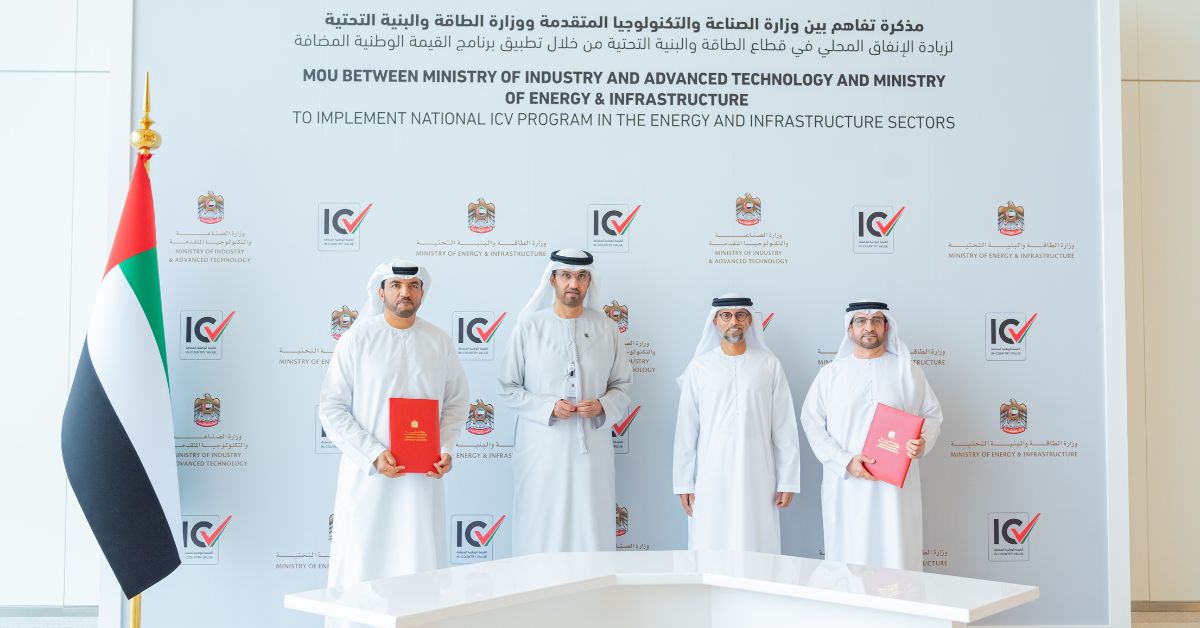VIENNA — The Organization of the Petroleum Exporting Countries (OPEC) and its allies in OPEC+ always strive to ensure balance in market fundamentals between supply and demand, to avoid an accumulation in global oil inventories that could lead to instability and speculative activities in global markets, said UAE’s Minister of Energy and Infrastructure Suhail bin Mohammed Al Mazrouei.
Al Mazrouei told WAM in an interview that OPEC’s technical team constantly monitors variables in global oil markets and presents its recommendations to the ministerial committee to make appropriate decisions, which can help improve market stability and drive sustainable growth.
The OPEC International Seminar’s 8th edition, which will be held under the theme, “Towards a Sustainable and Inclusive Energy Transition”, is an important global platform for forecasting and shaping the future of the global energy sector, with the participation of oil producing and consuming countries, energy sector leaders and experts from around the world, he added.
It will also contribute to a fair and realistic energy transition towards a more sustainable future, and ensure reliable energy supplies by utilizing the latest tech solutions in this vital sector, he continued.
Regarding the update of the country’s energy and hydrogen strategies, Al Mazrouei stressed that the Ministry of Energy and Infrastructure has completed the update to the UAE Energy Strategy 2050 and the development of the hydrogen strategy.
Both strategies are in line with the UAE’s efforts to achieve climate neutrality by 2050, through expanding the use of renewable energy, implementing new projects in areas such as hydrogen energy and waste-to-energy conversion, and encouraging investments in the energy and advanced technology sectors, which will support the country’s climate and achieve sustainable economic growth across various sectors, he said.
He also pointed out that both strategies are key tools for increasing reliance on clean energy sources and improving efficiency-enhancing technologies, which are strategic priorities of the UAE, especially in terms of supporting its climate action efforts as it prepares to host the 28th Conference of the Parties (COP28) at the end of 2023 in Expo City Dubai, with the participation of many countries.
Regarding the UAE’s energy transition, Al Mazrouei said that the UAE has made significant progress as shown in the Green Future Index 2023, rising eight ranks from the previous year to rank second globally.
In recent decades, the UAE has witnessed a significant energy transformation, becoming a global leader in the use of modern technology and innovation in the energy sector, he added.
He also pointed out that the UAE has vital natural resources in the oil and gas sector, and through a long-term strategy, it has diversified its economy and transitioned to a more diverse and sustainable energy mix, as it increasingly focuses on developing renewable energy sources, such as solar and nuclear energy and hydrogen.
The UAE Government encourages investments in these strategic sectors, and due to its commitment to innovation and sustainable development, the country has enhanced its position as a global leader in the energy sector, he added.
Al Mazrouei affirmed that the UAE is committed to driving sustainability and transitioning to more sustainable energy sources, adding that this growth in the energy sector is expected to continue within the framework of the UAE Energy Strategy 2050, which aims to encourage investments in renewable and clean energy projects, and raise awareness about the importance of achieving sustainable development.
Regarding the UAE’s investments in new and renewable energy sectors, Al Mazrouei noted that it has helped build the future-proof energy ecosystem through local and international investments in solar energy projects, peaceful nuclear technologies, carbon capture and storage solutions, and energy efficiency.
The UAE has invested more than US$50 billion in clean energy projects across 70 countries and has pledged to invest another US$50 billion in clean energy projects domestically and internationally over the next decade.
It has also provided over US$1.5 billion in grants and concessional loans for renewable energy projects, including projects in 30 developing island countries, which aim to improve access to electricity, meet a significant portion of their energy needs, create job opportunities, support community development and local economies, and reduce pollution, while enhancing these countries’ capacities to counter climate change.
In November 2022, the UAE announced the UAE-US Partnership for Accelerating Clean Energy (PACE), which aims to attract US$100 billion in financing to deploy 100GW of clean energy in the US, UAE and emerging economies around the world by 2035.








